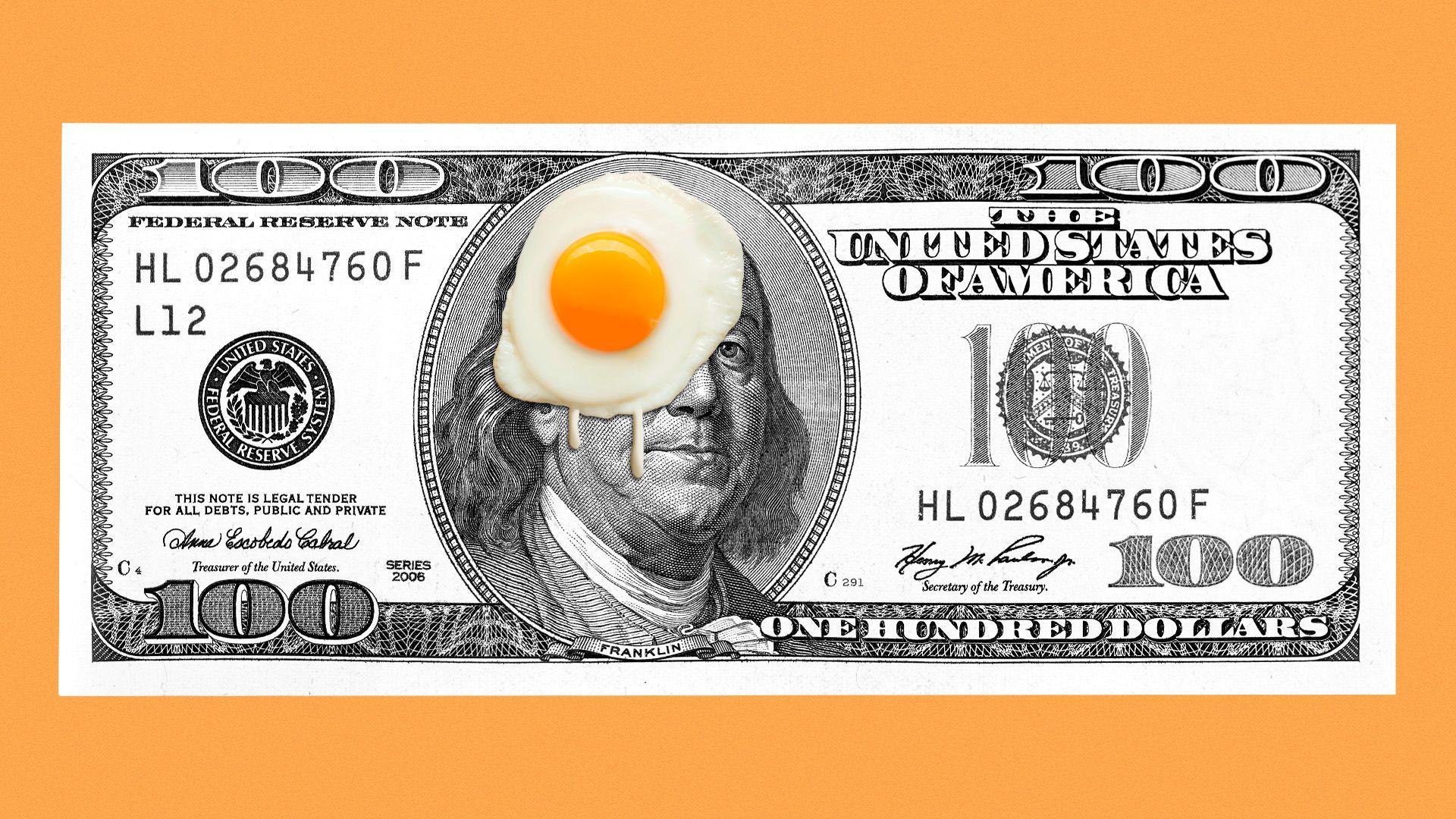Mea culpa: I got inflation wrong
Add Axios as your preferred source to
see more of our stories on Google.

Illustration: Sarah Grillo/Axios
It's hard to admit when you've gotten something wrong (especially when, like me, that's never happened to you before). But with prices rising faster and higher than I ever expected — 7.5% over the last year! — it's time to admit it: We really do have honest-to-god inflation.
Why it matters: The path of inflation has clearly emerged as the single most important issue facing investors, policy makers and politicians, many of whom missed it. Figuring out why we were slow to see it coming could make me better at understanding how price dynamics play out.
Flashback: Last July when crude oil prices were collapsing, I wrote: "I think we're really seeing the death throes of the inflation scare." That Tweet didn't age well.
- So how did this happen? I know the markets. I follow the economy. I read the research.
- Well, as I understand it, here's how:
I believed the bond market. But the bond market was wrong.
- When I made the wrongheaded pronouncement above, the yield on the 10-year Treasury was 1.21%. That low level would have suggested investors expected weak economic growth and piddling inflation over the next decade. (Treasury bond yields typically go up when expectations for growth and inflation rise)
- At the time, inflation expectations derived from the bond market — known as breakevens — showed bond market investors thought inflation would average a bit more than 2% annually for the next five years. No big deal.
I underestimated the impact of repeated supply chain disruptions.
- In 2021, I wrote a lot about wild swings in the prices of commodities such as lumber, cheese and steel as the economy began to recover from the pandemic.
- The main takeaway of my reporting, as I saw it, was that markets would be able to sort out prices through supply and demand — if given a bit of time without the virus. But we never got that time (thanks, Delta and Omicron).
I disregarded the risks of inflation because they were overhyped for so long.
- Throughout the entirety of my career covering the financial markets, there have always been people squawking about the risks of inflation.
- Even during the Great Recession of 2008-09, when the economy was actually fighting deflation — or falling prices — inflation-phobic financial pundits would argue that we were at risk of suffering a Weimar-style hyper inflation. (This June 2009 offering from the Wall Street Journal opinion page is a prime example.)
- Until this year, these Cassandras of consumer prices were always wrong. But they were so wrong, for so long, that I think on some level, I began to stop taking seriously the chance that inflation could actually happen at all. That was a mistake.
State of play: Having just admitted a major weakness in my prognosticatory powers, I'm not about to make any big predictions. But I'd still be really surprised if inflation continued to surge the way it has been.
What to watch: The Federal Reserve's tough talk has already raised interest rates set by financial markets — like the 30-year mortgage, for example — even before it hikes its own benchmark rate. That should slow the economy somewhat, easing price pressures.
- Oil — and gasoline prices — could go up more if Russian forces invade Ukraine. But I don't know if people will be willing — or able — to pay that much for fuel, and the global economy could falter, with weakening growth bringing prices back down again.
On the flip side: Another variant of the virus could mean the supply chain issues that are keeping costs high stay snarled for the foreseeable future, keeping price increases burbling.
The bottom line: I don't know what is going to happen. I guess we'll just have to wait and see.
